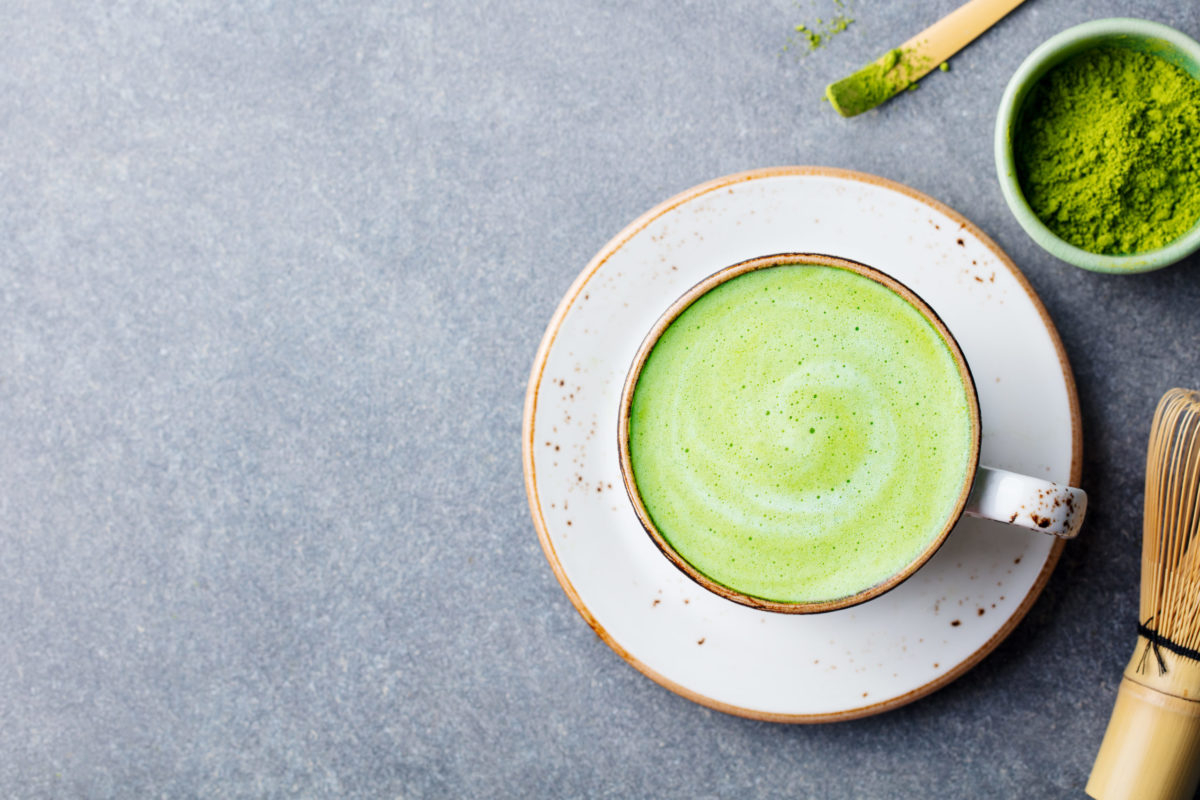People who drink tea or coffee may recognize the name “matcha” or its bright green color, but what is it? And could you benefit from adding it to your daily routine?
What is matcha?
Matcha is a finely ground powder of young green tea leaves, which are grown on green tea bushes. It’s known for its vibrant green color and high nutrient content. Matcha has a sweet, earthy taste and is a natural source of caffeine, antioxidants and nutrients. It’s often used in beverages, especially tea, but it’s also mixed into baked goods or smoothies for a natural source of caffeine, antioxidants and nutrients. You can find matcha in most grocery stores in the tea and coffee aisle.
Matcha benefits may include:
- Increased energy
- Decreased anxiety
- Improved skin
- Metabolism support
- Enhanced Immune System
- Cancer prevention
- Lower risk of heart disease and type 2 diabetes
How is matcha tea different from green tea?
Matcha tea leaves are shaded for an extended period of time from light to boost Chlorophyll content before harvesting.
Unlike green tea, which is often steeped in water and then removed, matcha leaves are finely ground and whisked into hot water. This allows you to consume the whole tea leaves and all of its nutritional benefits.
Matcha tea is:
- Naturally low in calories
- Free of gluten, soy and animal products
- High in antioxidants
- More nutritious than regular green tea
- A natural source of energy and focus
- Believed to support a healthy metabolism
Does matcha increase energy levels?
Thanks to naturally occurring caffeine and amino acid L-Theanine, which increases alertness and concentration while producing a calming effect. Matcha provides a boost to energy without an “energy crash” later, which is a common occurrence with coffee consumption and energy drinks.
One teaspoon of matcha provides approximately 60-70 milligrams of caffeine. On average, 1 cup of coffee contains about 95 milligrams of caffeine.
How is matcha prepared?
Try adding 6 ounces of hot water to 1 teaspoon of matcha powder. For a latte, your choice of milk or milk alternative can be added for taste. For a frothy hot drink, a small whisk is often suggested to ensure matcha powder is fully dissolved.
Matcha powders can also be used in recipes for smoothies and baked goods.
Are there any negative side effects of matcha tea?
Similar to other caffeinated teas, coffees and drinks, it is recommended to drink matcha tea in moderation. Drinking too much matcha can lead to side effects such as a rapid heartbeat, stomach upset and trouble sleeping. If you are sensitive to caffeine, pregnant or breast feeding it is important to check with your doctor before consuming matcha or other caffeine sources.
Get more information about specific health terms, topics and conditions to better manage your health on bcbst.com. BlueCross BlueShield of Tennessee members can access wellness-related discounts on fitness products, gym memberships, healthy eating and more through Blue365®. BCBST members can also find tools and resources to help improve health and well-being by logging into BlueAccess and going to the Managing Your Health tab.





